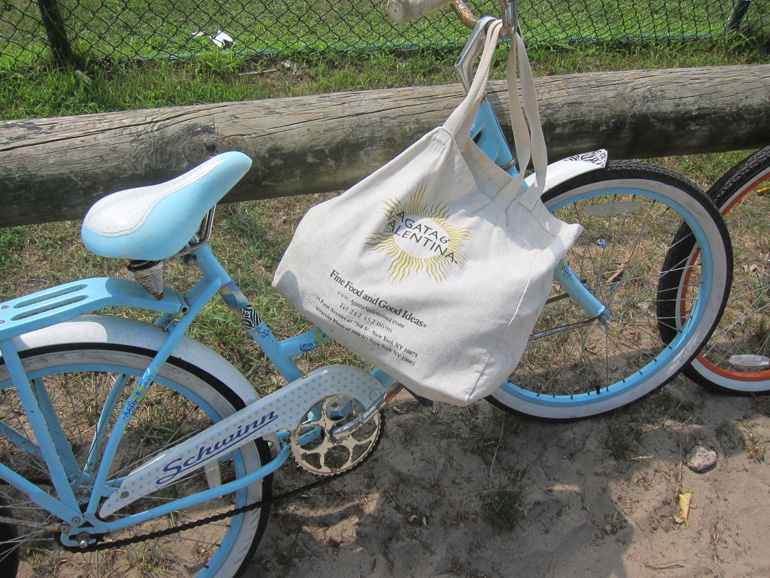Gotham Diary:
A Simple Pleasure
15 August 2013
On the whole, I’m finding Jacob Putnam, the protagonist of Caleb Crain’s new novel, Necessary Errors, to be appealing and sympathetic. As he is a big fan of Stendhal and Flaubert, I’m not sure that we’d get along in real life, but I’m enjoying the ways in which Necessary Errors tracks L’Éducation sentimentale and Le rouge et le noir, especially as Jacob is not nearly as shallow and callous as his romantic predecessors. There’s only one off-putting note in Jacob’s response to the world around him, and it gets louder as I turn the pages. It usually involves the word, “hunger.”
Jacob looked over the other men in the club with open hunger and curiosity. It seemed a place to be unabashed. He didn’t know if he wanted Markus or one of the others.
Jacob is a bright young Harvard grad who has only recently realized that he is gay; he is still, as a teacher of English in newly post-Communist Prague, finding himself; and, like Julien Sorel and Frédéric Moreau, he is doing so in a time of social upheaval that promises opportunities for self-transformation. Crain is very discreet about Jacob’s sex; beyond some kissing and caressing, we don’t see much. (I haven’t so far, anyway.) But this agreeable coyness seems only to make more lurid the nakedly generalized desire that overcomes Jacob in gay bars. It isn’t the sex that’s shameful; it’s the surrender.
By now, of course, I’ve realized that this is all about me, not Jacob Putnam. I’m the odd one, not Jacob. For a while, I thought that I was stubbing my eye on “hunger” because it is not the angle of desire that a straight man would emphasize. Straight men hunt. This means concealing their hunger with an appearance of some kind of assured ferocity. It is as though the ability to predate replaces the need implied by hunger. I’m assuming that the sexual impulse, among men straight and gay, is the same; but its expression seems to be colored very differently. It might be said that the gay man, acknowledging the need in his desire, is more honest than the bluffing, puffing straight man; and it might be countered that the straight man faces a stiffer challenge, because he must attract a person whose world view, most especially on the subject of sex and its consequences, is quite different from his own.
But “hunger” still bothered me, because it seemed unworthy of Jacob. That this thoughtful, well-intentioned memorizer of Emily Dickinson should yield to a much grosser appetite disappointed me. And that he would do so, of course, at a bar, because alcohol makes surrender so much easier. Jacob himself might not drink very much, but the very air in a gay bar is erogenous. Either that or absolutely terrifying — depending on how much you’ve had to drink. Because I’ve had so many more gay friends than straight, I’ve spent more time in gay bars than in their straight counterparts; in fact, I can’t remember actually being in anything like a straight meat market. I have never gotten to know a woman with whom I had a first encounter over drinks. This is very largely attributable to the time in which I grew up, now remembered as permissive but in then quite constrained, as to liquor as well as to sex. I feel the luckier for that, than otherwise.
But there is something in me that is determined not to surrender. (Why not just say, I am determined not to surrender?) Do I fear it? I suppose I must. What are we talking about here? Surrendering to another person, whatever that might mean? Or setting aside that other important aspect of autonomy, responsibility for one’s social self-control and good behavior. I would never surrender to another human being, sexually or otherwise, and I would be disgusted by anyone’s offer of surrender to me. (Mutual surrender would compound the problem, not cancel it out.) My amour propre, self-respect, call it what you will, is much too strong, too powerful a source of other pleasures, for me to consider giving it up. As for the other kind of surrender, are you mad? Experience attests that mortification is the one and only outcome of experiments in that direction; happily, I have never wound up in jail — but let that be a warning to me.
It’s academic, at my age, given my way of life. But I still wish for nice people like Jacob that they would get to know people before having sex with them. Abandon can be exciting, I’m told, but my own constitution has drawn pleasure from giving pleasure, and this is something that you can do much better if you know the person whom you want to please. There’s a lot of writing out there that suggests that the great thing about sex is that you get to check your personal baggage at the bedroom door, that sex is an escape from self. But is this true? Doesn’t this reduce sex to an adventure, a lark? In which case there are better things to do. (Become a missionary.) In Jacob’s case, it seems to be only the prospective part of sex that is mysterious.
They embraced quickly for a leave-taking, and the smell of Luboš, rising off his body as they touched, first disgusted Jacob, then melted him, the second response succeeding the first almost instantly, disorientingly. This was the body he had been lying next to, the aroma reminded him, with whom he had taken a simple pleasure. He had somehow forgotten it upon waking up.
I’d be happier if Jacob’s simple pleasures could follow simpler meetings. Then he might skip that initial, disorienting disgust. But wait! There’s lots of Necessary Errors still to read.

